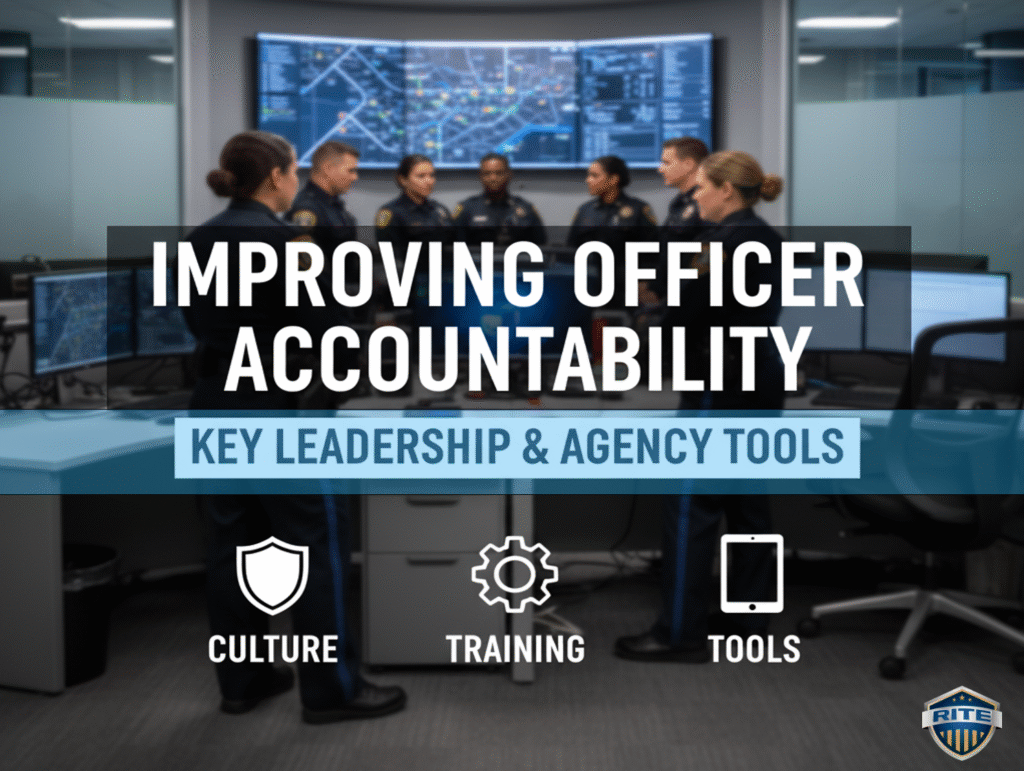Officers don’t show up for their shift thinking, “Today I am going to use excessive use-of-force.” Everything that has been negatively building up in the Officer’s life before the incident, is what triggers the final blow.
In the story below, we see a series of events that build up over time, and can lead to our judgment being clouded.
After 25 years on the force… he’s tired. From a multitude of incidents he suffers from PTSD , and to top it off personally, he is going through a divorce and in a custody battle.
The weight of his 25 years on the force, the constant exposure to difficult and traumatic events, is pressing down on him, contributing to his PTSD. He is reliving past incidents and feeling the cumulative toll of his career.
The stress of his personal life, particularly the divorce, could also be a significant distraction, making it harder to focus on the immediate situation. He might be thinking about his family, the breakdown of his marriage, or the uncertainty of his future.
There is a sense of duty, a deeply ingrained habit of performing his job, even when he’s at a breaking point. He might be questioning the system he’s a part of but still feels compelled to carry out his duties.
In essence, his thoughts could be a turbulent mix of weariness, past trauma, personal anguish, and a strained sense of obligation… A ticking-time bomb situation that could lead to block-out and ultimately a career-ending moment
Causes of Mental Stress:
- Post traumatic Stress
- Interdepartmental Issues
- Family Concerns
- Health Issues
- Taking care of Aging Parents
- Financial Instability
Exposure to Traumatic Events:
Police officers operate in high-stress environments where they are routinely exposed to traumatic events that can have significant effects on their mental health. Some of the most common trauma-inducing incidents include:
- Violent crimes with gruesome images
- Fatal accidents
- Community unrest and hostility
- Child abuse crimes
Each of these situations carry long-term psychological consequences that may affect well-being, relationships, and job performance. Being exposed to horrific images can trigger emotional responses such as shock and numbness. Over time, repeated exposure to these stressors can culminate in conditions such as post-traumatic stress disorder (PTSD), anxiety, and depression.
Interdepartmental Issues:
Interdepartmental Issues can often cause uncertainty in police officers’ lives, causing disruption, change, rumors, gossip and other emotional factors like:
- Leadership Entitlement
- Changes in Policies and Procedures
- Promotions
- Annual Raises and Overtime Changes
- Feeling de-valued inside the Organization
Block-Out Syndrome occurs when logical reasoning is often overridden by reactive impulses rooted in anger, frustration, or fear – we refer to this in class as the Bottom of the RITE Ladder.

Officers can quickly descend the RITE Emotional Energy Ladder, leading to negative emotions and potentially escalating situations with severe consequences.
The connection drawn between a lack of Emotional Intelligence and Block-Out is crucial.
The internal state of an officer in Block-Out:
- Cloudy thought process: impaired judgment and the ability to make sound decisions
- Limited space of mind: a narrowed focus, causing officers to miss critical cues or the behavior of others
- Shallow breathing: a physiological response to stress can further intensify anxiety and hinder clear thinking
- Empathy becomes apathy: in-ability to connect with others, understand their perspectives, and respond with compassion.
- Minimizes sanctity of life: a diminished value for human life and an increased risk of excessive force.
Stress Management Techniques – Reduce Block-Out
- Be present in the Moment – ask yourself when you are ANGRY, or MAD, “why am I letting them get to me?
- Mindfulness and Meditation – it encourages focusing on the present moment. Detach from any negative feelings of the past
- Physical Exercise – all release endorphins, which act as natural stress relievers.
- Breathing Exercises – deep abdominal breathing or box breathing (inhale for four counts, hold for four, exhale for four, and pause for four). Has been reported to lower stress levels.
- Work-Life Balance – essential for stress management. Set aside time dedicated to family, hobbies, and self-care. Those who thrive in their personal life show enhanced performance and lower stress levels at work.
Tenure Burnout in Public Service
Tenure Burnout is a significant concern among law enforcement professionals, manifesting as emotional, physical, and mental exhaustion over long periods of time. It often results from prolonged exposure to stress and high demands associated with police work.
Common indicators include a sense of detachment or cynicism towards one’s job, a decline in work performance, increased irritability, and feelings of helplessness.
When overlooked, officers may experience decreased job satisfaction and impaired mental health, which can ultimately impact public safety.
The nature of the work can be inherently stressful due to the unpredictability of situations, potential for conflict, and emotional toll of job-related experiences. Addressing departmental culture and promoting healthy work environments is essential in combating burnout.
Preventing Burnout
- Learn to prioritize tasks and recognize that not every issue can be addressed immediately.
- Seek support from colleagues and supervisors allowing officers to share experiences and coping mechanisms.
- Engage in self-care activities is paramount; regular physical exercise, mindfulness practices, and hobbies
By implementing these strategies, police departments can mitigate the risks of burnout, ultimately leading to healthier, more effective officers in the field.
Mental Health Resources and Support
The nature of policing exposes officers to various high-pressure situations, making it essential to prioritize their mental well-being.
Resources Include
- Therapy, Counseling, and Peer Support Programs play a significant role in helping officers manage stress and enhance their mental health.
- Open Departmental Environment promoting mental health initiatives. By actively supporting these programs, they create a culture that acknowledges the importance of mental health in law enforcement.
- Emotional Intelligence Training giving officers necessary skills to recognize their own emotions, become aware of mental health issues. Training like RITE helps identify signs of stress and burnout, understanding mental health, and encouraging dialogue about emotional wellness topics.
- Professional Workplace Culture Policies and Procedures that clearly outline how officers can gain access to mental health resources.
Lastly encouraging open communication about mental health and stressing its importance helps shift the cultural perspective within law enforcement, ultimately leading to enhanced resilience and job satisfaction among officers. Such initiatives contribute not only to the well-being of individuals but also to the effectiveness and safety of the entire police force.
About RITE
Since 2015, RITE Academy has trained over 2000 police agencies in Emotional Intelligence. Helping officers on how to recognize the onset of Block Out Syndrome. RITE Training uses physical cognitive imprinting tools, giving the officer better control of their own emotions in every situation.
Block-Out Training helps officers recognize when they might be falling into a bad situation, as well as recognize the Block-Out Signs in others, to apply Duty-to-Intervene Techniques… Step In, Tap Out, and Take Over.
RITE Training helps ALL public servants improve internal communication that improves officer mental health and wellness. When you learn to control your emotions, you learn to control every situation, and help others that are in need. Contact us on how to bring RITE to your agency.




